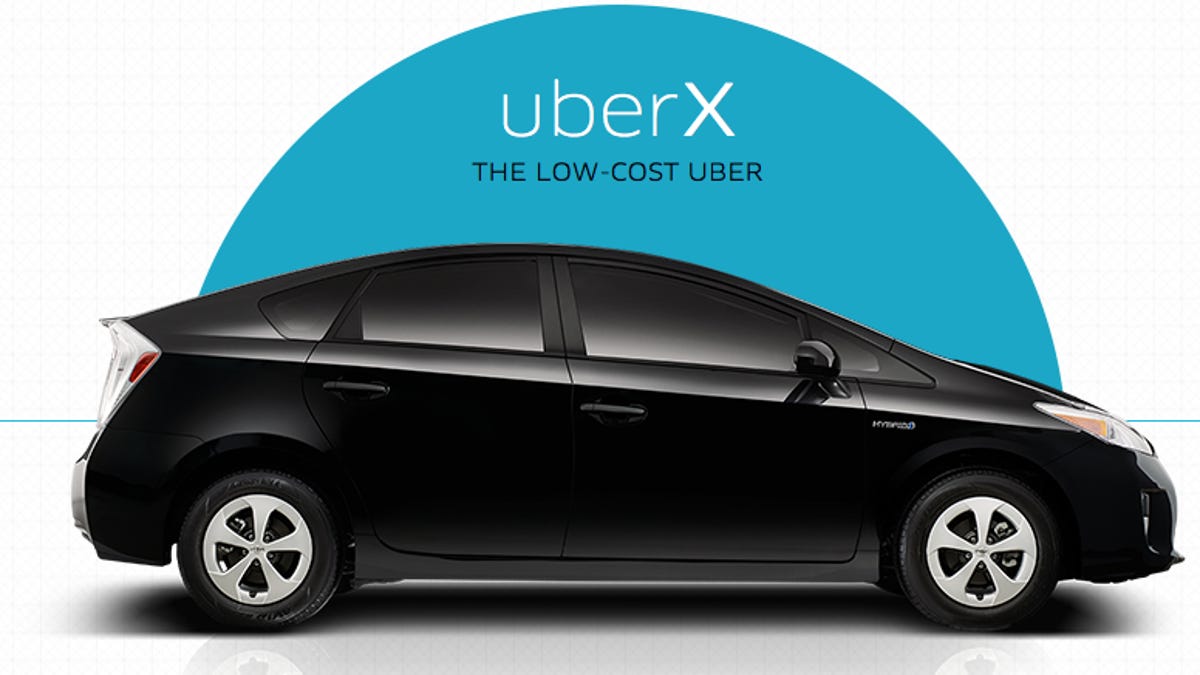Uber battles D.C. regulators over the size of its cars
The Washington D.C. Taxi Commission outlaws UberX because it uses mid-size vehicles without a meter, which supposedly causes unfair competition to taxicabs.

Just as Uber got its UberX taxi service up and running in Washington, D.C., it's now being shut down. Why? Because its cars are too small.
UberX is the car-sharing app's answer to taxicabs. The service is low cost and charges by the minute or mile, like a taxi, but doesn't use a meter. The cars UberX uses are also smaller, such as the Prius and Toyota Camry -- and that's where the rub is.
The D.C. Taxi Commission (DCTC) passed new regulations this week that only allow for the use of larger sedans as for-hire vehicles and outlaw the use of mid-size vehicles, like the kind UberX uses. The commission said that all smaller cars must use a meter and be regulated like metered cabs. UberX uses an app that counts the miles and minutes rather than a traditional meter.
It appears, however, that the problem isn't actually about the size of Uber's cars, but more about competition the service is creating with taxis in the D.C. area.
"Commission Chairman Ron Linton argued that allowing consumers to use Uber to arrange transportation using more affordable, more efficient vehicles like a Toyota Camry Hybrid would represent unfair competition to traditional taxi service," Uber wrote in a blog post on Monday.
According to NPR affiliate WNYC, Linton was quoted saying, "There is no reason Uber can't comply with present regulations as others are doing, other than Uber's desire to use unregulated vehicles to compete against the same vehicles operating as regulated taxis."
Uber has hashed it out with the DCTC for more than a year in negotiating how it would offer its services in the capital. After a series of conflicts with the regulators last year, the startup was finally allowed to start operating its sedan service last January.
Washington, D.C. isn't the only city where Uber has faced resistance. After a long back-and-forth with New York's Taxi and Limousine Commission, New York City finally started allowing ride-sharing apps in a pilot program in April. And, other cites, like Los Angeles, San Francisco, Chicago, Denver, and Miami have also battled with Uber in the past.Not all hope is lost for Uber in D.C., however. Apparently, the company has the support of many D.C. residents and even City Council member Mary Cheh, who tweeted Tuesday, "It isn't the job of DC Government to stifle innovation & limit consumer choice by passing unfair regulations."
For its part, Uber said it's not backing down. "While we're still figuring out how to operate within this regulatory environment, rest assured that we do not plan to take this lying down," Uber wrote in the blog post. "We remain committed to doing everything we can to ensure that everyone in the District can enjoy affordable and efficient transportation options."

